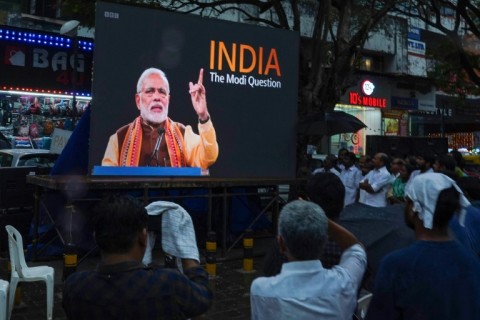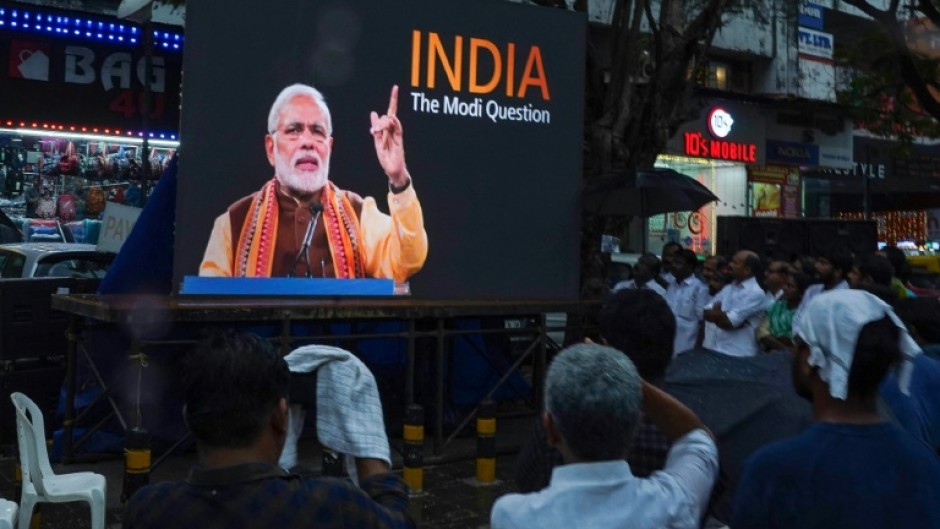
NEW DELHI - Indian tax authorities raided the BBC's New Delhi and Mumbai offices on Tuesday, weeks after the broadcaster aired a documentary on Prime Minister Narendra Modi's actions during deadly sectarian riots in 2002.
Press freedom in the world's biggest democracy has suffered during Modi's tenure, rights activists say, and the opposition Congress party condemned the raids, saying there was an "undeclared emergency" in the country.
A spokesman for the ruling Bharatiya Janata Party (BJP) accused the broadcaster of engaging in "anti-India propaganda" but said the raids were lawful and the timing had nothing to do with the government.
"India is a country which gives an opportunity to every organisation," Gaurav Bhatia told reporters, "as long as you don't spew venom."
"If you have been following the law of the country, if you have nothing to hide why be afraid of an action that is according to the law?"
In a statement on Twitter, the broadcaster said it was "fully cooperating" with authorities.
"The Income Tax Authorities are currently at the BBC offices in New Delhi and Mumbai and we are fully cooperating," it said. "We hope to have this situation resolved as soon as possible."
Police sealed off the BBC's New Delhi office, which occupies two floors of a high-rise on a leafy avenue in the capital's commercial heart.
A New Delhi-based BBC employee said that officials had been "confiscating all phones" during the tax raid.
Last month, the BBC aired a two-part documentary alleging that Hindu nationalist Modi ordered police to turn a blind eye to sectarian riots in Gujarat state, where he was premier at the time.
The violence left at least 1,000 people dead, most of them minority Muslims.
India's government blocked videos and tweets sharing links to the documentary -- which was not aired in India -- using emergency powers under its information technology laws.
Government adviser Kanchan Gupta had slammed the documentary as "hostile propaganda and anti-India garbage".
University student groups later organised viewings of the documentary despite campus bans, defying government efforts to stop its spread.
Police arrested two dozen students at the prestigious Delhi University after stopping a screening there in late January.
"First came the BBC documentary, that was banned," the opposition Congress party said on Twitter. "Now IT has raided BBC," it continued, referring to the Income Tax Department. "Undeclared emergency."

